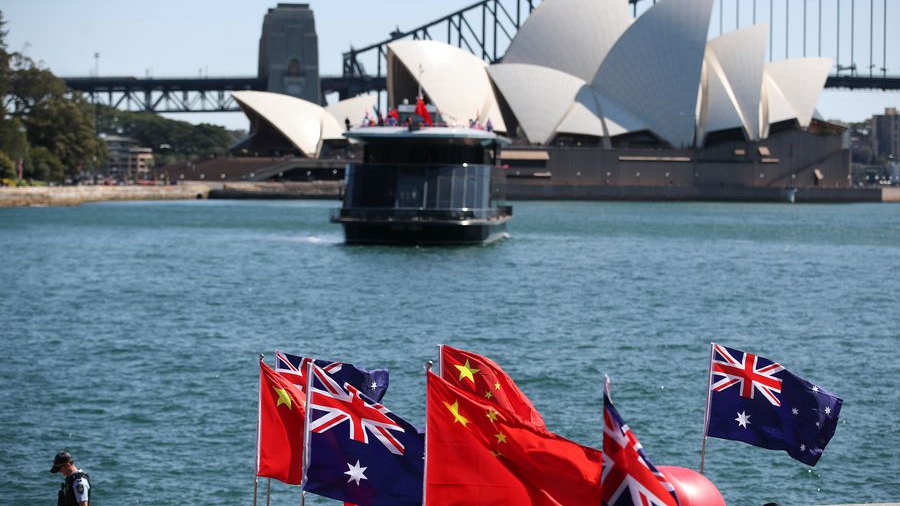
The Chinese and Australian national flags in Sydney, Australia, on Sept 8, 2019. [Photo/Xinhua]
This is an editorial from China Daily.
Australia and the Solomon Islands are once again embroiled in an exchange of words, this time over Australia's offer to fund the Solomon Islands' next election.
In a statement on Tuesday, the Solomon Islands government said an Australian offer to fund its next election was "inappropriate" and accused Australia of trying "to influence how Members of Parliament will vote". Solomons Prime Minister Manasseh Sogavare called it "an assault on our parliamentary democracy".
In an interview with ABC radio on Tuesday morning in which she revealed the offer, Australia's Foreign Minister Penny Wong, said it reflected Australia's longstanding and historical commitment to supporting democracy and democratic processes in the Solomon Islands. However, the fact that she had to deny that it had come in response to calls for support from the Solomon Islands opposition, shows that others think it is aimed at regime change.
In fact, ever since the Solomon Islands signed a landmark security pact with China in April, Canberra has staged intense diplomacy, trying to throw mud at its cooperation with China.
If Canberra really cares about its ties with the Pacific island country, it should treat it with respect.
For years, Canberra has given a cold shoulder to its Pacific island neighbors, and has paid no attention to their people's well-being. But both Canberra and Washington have shown a sudden interest in forging closer ties with the Pacific island countries of late, as they seek to turn the Pacific islands region into a venue for geopolitical competition with China.
The funding spat, which stems from Australia's newly found frenzy to win back influence in the Solomon Islands, is clear proof that Canberra is stubbornly walking down the wrong path when it comes to salvaging Australia's ties with its smaller Pacific island neighbors and winning back its waning influence in the region.
For a long time, China has carried out a large number of assistance projects in the Pacific island countries that are in line with their actual needs. Most recently, the Enga Provincial Hospital in Papua New Guinea and the China-Samoa Friendship Park in Samoa have been handed over after completion, and the ground has been broken for dormitory buildings at the Solomon Islands National University and phase one of the Pentecost road project in Vanuatu. Such projects help effectively drive local economic development and improve people's livelihoods, and have thus been widely welcomed by the governments and people of the island countries.
China will continue to steadfastly strengthen practical cooperation in various fields with the island countries so as to deliver more tangible benefits to the local people.
The election funding spat should serve as a lesson for Canberra that it is high time its interactions with its island neighbors were based on mutual respect and equality with the aim of producing tangible benefits, rather than deeming them to be chess pieces in its geopolitical competition playbook.

 中文
中文



